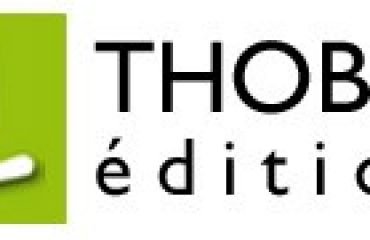This post is also available in:
 العربية (Arabic)
العربية (Arabic)
| Name of Publishing House | mercier press |
|---|---|
| website | https://www.mercierpress.ie/ |
| Communication | https://www.facebook.com/mercier.press |
IRISH PUBLISHER IRISH STORY
Mercier Press is Ireland’s oldest independent publishing house, based in Cork. It was founded in 1944 by Captain Seán and Mary Feehan. The publishing house was named after Cardinal Mercier of Belgium, a man who in his day, proved himself not only a man of thought, whose mind ranged over every subject of vital interest to humanity, but a man of action in the varying circumstances of a life that shone before the eyes of a watching world. The voice of Cardinal Mercier could not be stilled and Mercier Press is proud to borrow from him the inspiration for its publishing programme, which is a belief in the importance of Ireland’s ability to provide accessible histories and cultural books for Irish readers and all who are interested in Irish cultural life.
The Story Of The Mercier Press
The Mercier Press was established in 1944 amidst the darkness of a world crisis, a few months before the end of the Second World War. Mercier went on to become the first Irish publisher to challenge accepted Catholic dogma with its first book, The Music of Life, by Fr. James, which encouraged the reader to question. This was hugely significant in 1940s Ireland and its influence on Irish life cannot be underestimated. The success of the book proved that there was a demand for alternative ways of thinking in the new Ireland, and was a radical new approach to Catholic publishing, in which Mercier went on to become a world leader until Vatican 2 in 1962.
J.M. Feehan was the first Irish publisher to attend The Frankfurt Bookfair and Mercier continues to have an unbroken attendance record since 1955. After Vatican 2, many Catholic publishers went out of business but Mercier survived. The seed of change in the direction of its list was in fact planted at the Frankfurt Bookfair, where callers to the stand expected to see not just Catholic books but a range of Irish books – but they were not available because they were not being published. The disappointment of these visitors was a constant reproach to Captain Feehan so he addressed the issue and began publishing Irish interest books, with the intention of presenting the Irish people and their culture, both to themselves and to peoples who were interested in Ireland and the Irish, fairly and without flattery or stage Irishry. The Mercier paperbacks were born and brought something new to Irish publishing, at great risk as there was no precedent for how Irish people would react to books of this nature. A man of great vision, Feehan was willing to take that risk. It was indeed timely and in the 1960s Mercier entered a period of further growth.
This was the period of Censorship in Ireland and, never an organisation to shy away from controversy, Mercier published the classic of Irish literature, The Tailor and Ansty by Eric Cross, which had been banned in Ireland under censorship laws after its first publication in England in 1942 by Chapman and Hall. Mercier’s edition has been in print ever since. Also around this time, the relationship between playwright John B.Keane and Captain Feehan becomes key to the Mercier story.
One of Mercier’s first authors, James N Healy, introduced them, believing there was something very special in John B’s work and that Feehan would recognise and develop it. He did, and a Great Irish Writer emerged. Author and publisher enjoyed a life long friendship and had huge success with Keane’s ‘Celebrated Letters’ series, novels and plays, including the tragic Sive and The Field, which was produced as an Oscar, Bafta and Golden Globe nominated film in 1991.
By the 1970s Mercier had gained a reputation for being different, radical and publishing controversial Irish bestsellers. In 1974 Irish Marriage How Are You by Nuala Fennell was published, which was a brave endeavour in an Ireland where what went on behind closed doors was simply not discussed. This resulted in the BBC visiting our shores and making a documentary based on the book. Mercier published a huge range of titles which lifted the lid on previously undiscussed matters such as drug abuse, domestic violence, the sexual revolution and women’s rights. In a completely different vein, Mercier also published the phenomenally successful Book of Kerryman Jokes by Des MacHale. The demand for these books was so large that wholesalers sent their delivery trucks directly to the printers to collect the books off the press before they ever landed in the warehouse!
By the 1980s Mercier Press was publishing 50 titles per year and was recognised as one of the largest and most successful trade publishers in the country, publishing literature, religion, biography, humour, folklore and tradition. However in the 1980s recession hit Ireland, Mercier had to again change focus to reflect Irish readers changing tastes as well as the conflict in Irish society. Controversially, in a time of political censorship Mercier released books such as, The Secret War, Who’s bugging you?, The Shooting of Robert Nairac, Shoot to Kill, One Day in My Life, The SAS in Ireland, Man of No Property to name but a few. By the 1990s Mercier was an established brand in the areas of politics, folklore and history and as Irish society continued to evolve, ground breaking current affairs titles were published, such as Chris Moore’s Betrayal of Trust; The Father Brendan Smyth Affair, which exposed clerical sexual abuse and caused the fall of the government of the day.
As The Mercier Press entered the Millenium, it had over 55 years of trading under its belt, through tough times and good times. 2001 saw the publication of It’s a Long Way from Penny Apples by Bill Cullen, which went on to become one of the most successful Irish books ever published. The decades since 1944 have seen many changes in Irish life and our business continues to change and evolve to reflect those changes. The acquisition of the classic Anvil and The Children’s Press lists added another dimension to our business and we are committed to keeping classic Irish texts for children and adults available for readers. We are proud of our heritage, proud of the contribution our business has made to Irish cultural life, and proud to offer an alternative voice to authors, readers and scholars.
This post is also available in:
 العربية (Arabic)
العربية (Arabic)

 English
English 



